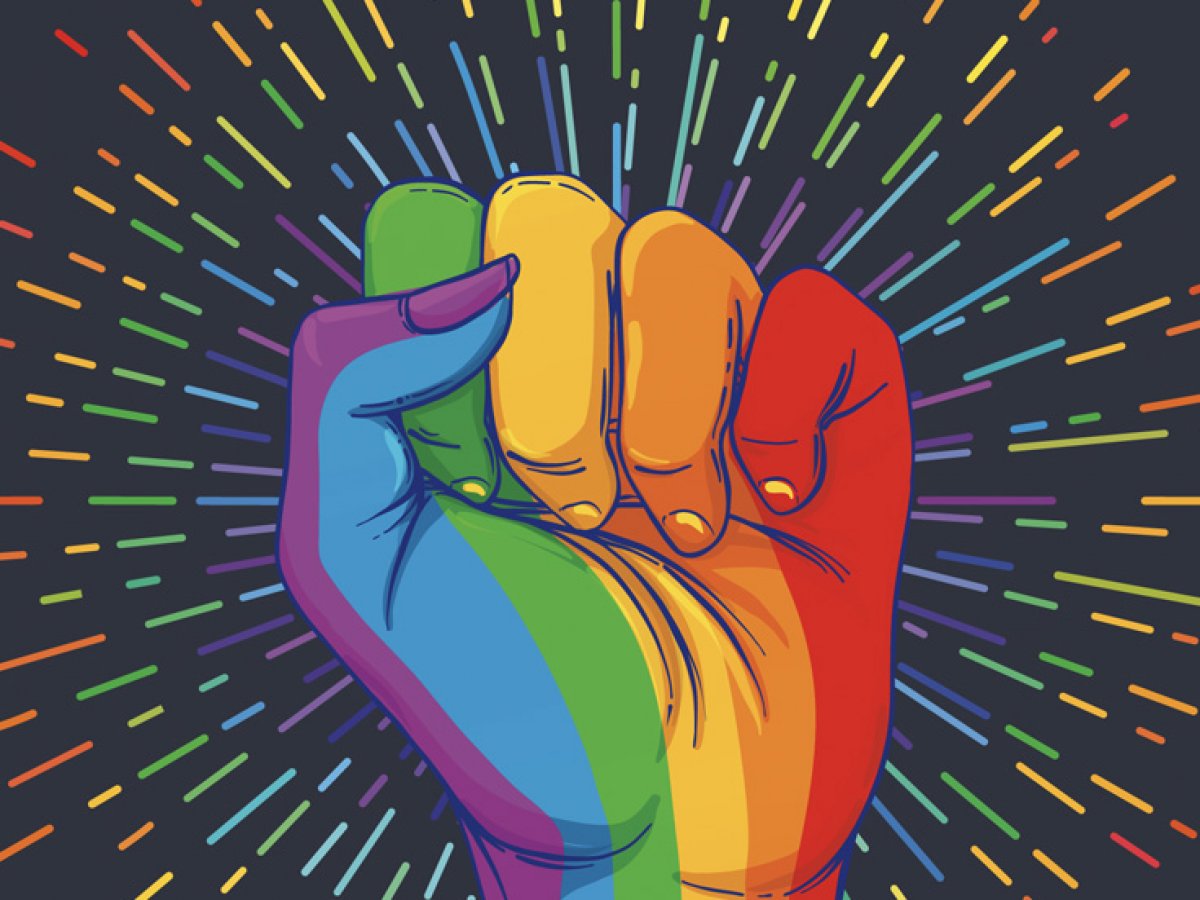
When I was a rabbinical student in my 20s, I fell in love with someone who opened my eyes to the fact that I was definitely not straight. My first reaction, after surprise, was immense gratitude. I knew that my community—my friends, family, colleagues, classmates, and teachers—would be nothing but delighted for me as I came to know this part of myself, and would welcome anybody I loved. Before I met my fiancé, I dated people of many genders and could have ended up with a partner who identified in any number of ways. As I prepare to marry the person I love, and uneasily prepare to benefit from the privileges afforded to us that we wouldn't have if he weren't a man, I remain acutely aware of who I am.
Every year during Pride Month, corporations around the country remember that they're supposed to care about LGBTQ+ people. They deck out their websites in rainbows, sponsor floats in parades, and pass out pride swag. Some companies are genuinely queer-affirming, extending employee benefits to their partners of any gender and opting into insurance policies that cover IVF and hormone therapies for those who need. Many others do a show of inclusion that ends as soon as the calendar hits August.
Recently, WES concluded a year's learning with Keshet, an organization working for full inclusivity of LGBTQ+ people in Jewish communities. We learned that in some ways our community is doing great. We have many LGBTQ+ staff, board members, and congregants. We have gender-neutral restrooms. But we also have antiquated software that requires people to pick "male" or "female" to make a donation. And we have a community that must continue to learn what it means to be properly inclusive—to center LGBTQ+ members, to move away from binary-based assumptions, to begin including pronouns as a matter of course—as our JFLL students do!
This Pride Month, we can't control how corporations act, but we can control how we ourselves behave. As members of a religiously marginalized group in the United States, we already know about how it feels to be treated as less than because of an identity that we hold— even as many of us benefit from other forms of privilege. And so when it comes to our relationships with LGBTQ+ community members, we must consider our words carefully—the way that we speak about LGBTQ+ people, publicly or behind closed doors, and the way we respond when we hear others speaking unkindly. We must consider the assumptions we make about people before and after we learn about their gender identities and sexual orientations. And we must consider the ways in which it is our responsibility as Jews to continually seek tikkun, repair, of all that remains broken.
Someday we'll find it—the rainbow connection—the path between rainbows as a performative expression of solidarity and the work of actually building community where LGBTQ+ folks are safe, celebrated, and protected by law. Until then, it is on each and every one of us to live the values of kind speech, of proper welcome, and of centering the voices in our communities that aren't heard often and loudly enough.
Blessings, and Happy Pride,
R’Emily & C’Melissa




